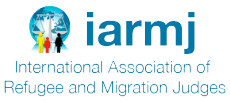The court determined whether to set aside the impugned decision and replace it with a declaration that the first applicant is not a prohibited person or alternatively remit the decision to the DG for further consideration. It held that the DG had incorrectly applied section 29(1) of the Immigration Act as a strict liability provision without considering section 29(2), designed to address the harsh outcomes of section 29(1) when good cause is demonstrated. The court rejected the DG's contentions regarding the applicant's knowledge of department processes and her failure to press charges against the immigration consultant, finding them insufficient. The court emphasized that suspicion alone cannot establish a fact and noted the absence of contradictory information to the applicant's claim of being a victim of fraud. Moreover, the court criticized the DG for neglecting the best interests of the child, required by the Constitution, Children’s Act, and international instruments. Despite not directly involving the Refugees Act, the court recognized the relevance of section 2 of the Act in the context of Russia's wartime conditions. Consequently, the court concluded that the applicant, for good cause, deserved the lifting of the prohibition.
Prohibited person, immigration, illegal foreigner, permanent residence permit, imprisonment, detention, work visa, study visa, best interests of the child
The applicant, a Russian citizen residing in South Africa since 2010, had obtained a work visa from 2010-2013 and a study visa valid until 2015. Despite lacking a valid status recognized by the Immigration Act 13 of 2002, she continued residing in the country. In 2018, she was arrested for possessing a fraudulent work visa. Subsequently, she was declared a prohibited person and ordered to leave the country. This application sought to review the second respondent’s (Director-General's (DG)) decision, which rejected the plea the plea to lift the prohibition for permanent residence. Despite the case not falling under the Refugees Act, the potential deportation's impact on the applicant's minor children was stressed. Section 2 of the Refugees Act, highlighting that South Africa cannot reject or force a foreigner back if their life is threatened due to external factors, was emphasized, pointing out the DG's apparent oversight of this consideration.
The court substituted the impugned decision with a declaration that lifted the prohibition. This was to allow the applicant to proceed with an application for a permanent residence (PR) visa. Consequently, the court directed the DG to authorize the applicant to stay in South Africa during the processing of her visa application. During this period, the first applicant was to be protected from deportation. The court also directed the respondents to cover the costs of the application.
The court interpreted and read section 29(2) of the Immigration Act designed to be a safety net for persons found guilty under section 29(1) where good cause is shown.
The court also relied on the SCA case of LD v Central Authority (RSA) and Another 2022 (3) SA 96 (SCA) to conclude that the giving effect to the best interests of a child has the effect of ‘rewarding’ the mother of ‘her bad behaviour’, then it is a unfortunate but unavoidable result.
